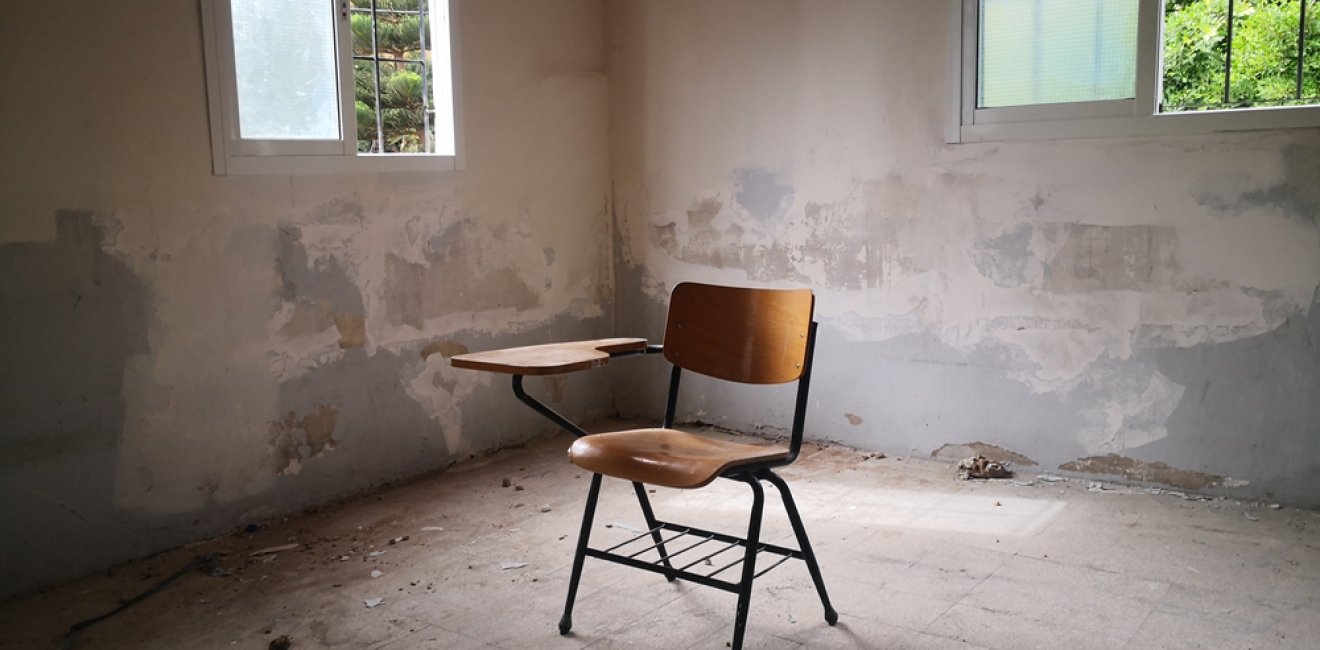On January 25, the U.S. Ambassador to Lebanon Dorothy Shea announced that the United States will provide “$72 million as cash stipends to Lebanon's security forces” to further bolster support for the Lebanese Armed Forces (LAF). The country’s financial and economic crises have “slashed salaries” prompting many desertions and resignations in the past year. Shea underscored that this is the first time the LAF will receive cash support for salaries from the U.S. – an important intervention given the severity of the crisis has pushed over 80 percent of Lebanon’s population below the poverty line.
However, the LAF isn’t the only institution vulnerable to salary cuts. Last month, teachers around the country went on strike over low salaries, also slashed by the Lebanese lira's (also known as the pound) devaluation and dire working conditions. Manifested at the beginning of the year in school closures, this education crisis is, as UNICEF Representative Edouard Beigbeder warned in a statement, a “learning catastrophe” that will impact children and have “immediate and long-term impacts on their learning, protection and future prosperity,” inhibiting “recovery from the current economic crisis.”
Generations of talented and educated Lebanese are now mostly scattered across the world and remain one of Lebanon’s most valuable assets.
Strengthening the LAF is of paramount importance given Lebanon’s convoluted politics and geopolitical positioning. Security needs notwithstanding, the US and international and regional players must also focus on resuscitating Lebanon’s public education system, historically one of the country’s strengths. Generations of talented and educated Lebanese are now mostly scattered across the world and remain one of Lebanon’s most valuable assets.
Teachers Strike
The teacher’s strike, which broke out last month, included demonstrations in front of Lebanon’s Ministry of Education, wherein teachers called for salary adjustments and protested poor working conditions in schools. One teacher lamented to the media, “every other public sector got a salary adjustment for employees. Why not us?”
Walid Nasser, a public-school Physical Education teacher and coordinator for vocational training at the Ministry of Education, told me that the devaluation of the lira slashed teachers’ salaries to 2 million liras or 40 USD per month. “Given the rising price of gas,” he noted, “this salary won’t be enough to just drive to and back from school.”
Similarly, the spike in fuel prices is also impacting Lebanese parents’ ability to pay for gas to transport their children to school, noted Samar Dani, Executive Director of INJAZ Lebanon. “At least kids were in school and learning even if there are issues with quality, now they are out of school.”
Mohammad Najem, who runs a digital rights organization in Beirut said his “mother’s pension as a former public-school teacher was slashed from 2000 USD per month to about 100-200 USD.” I heard similar accounts from other young professionals in Lebanon whose parents were employed by the Ministry of Education, adding further pressure on them because they now must help their retired parents, especially in securing medicines whose prices skyrocketed due to limited supply and rising inflation.
These multiple exchange rates have an adverse impact on an economy that is already suffering from both financial and political crises.
The Lebanese currency has lost 97 percent of its value since the fall of 2019, which prompted thousands to protest the financial and economic crisis across the country. While the Lebanese Central Bank changed the official exchange rate to 15,000 Lebanese pounds to the USD on February 1, this official rate varies vastly from the street exchange rate, which was at 42,000 pounds when I visited Beirut in December 2022, and is now estimated at around 62,000 pounds to the dollar. These multiple exchange rates have an adverse impact on an economy that is already suffering from both financial and political crises. They are also a product of the political dysfunction the country is experiencing.
It's the Politics!
Lebanon’s caretaker Education Minister Abbas Halabi told Al Jazeera last month as the teachers strike was intensifying that Lebanon’s “problem right now is a financial one,” adding that “if the government has funds, the teachers will be paid and the students will then be able to go back to their classrooms.” However, Walid disagrees. “It’s not that there is no money, it’s the poor financial management and wasting funds for political reasons that is at the heart of the problem,” he noted, adding, “it’s the sectarian politics.”
While not clearly naming sectarianism as the main impediment to Lebanon’s crises, Minister Halabi did note in the same interview that his country’s “governing apparatus is broken.” He is not wrong. Lebanon’s parliament failed to elect a President for the 11th time during the January 2023 session, leaving it to a caretaker government led by Prime Minister Najib Mikati. This political vacuum has only derailed necessary economic reforms the country must enact to stop the cycle of “wasteful spending,” as Walid mentioned. These reforms are also critical for Lebanon to enroll in the IMF program that has been stalled for three years. It’s no panacea, but the plan is an essential step for stabilizing the financial system and moving toward recovery.
In a recent letter to U.S. Secretary of State Tony Blinken and Secretary of Treasury Janet Yellen penned by Senators Robert Menendez and James Risch, the Chairman and Ranking Member of the Senate Foreign Relations Committee, they urged “the Biden administration to use all available leverage, including the threat of sanctions, to ensure that Lebanese lawmakers select a new president and form a government in a timely manner and implement overdue economic reforms.”
These economic reforms can help unlock the education crisis, but much needed reforms are also critical in education itself. Walid, whose doctoral thesis focused on the challenges and opportunities to reform vocational education in his country, noted that the Ministry of Education does not have a plan to modernize and revitalize education.
Recent results of the PISA are a cause for grave concern, with two-thirds of Lebanese students not achieving basic literacy.
In a 2021 Reform roadmap for Lebanon’s education system, the World Bank highlighted the seriousness of reforming the education sector in the country noting that Lebanese children “lag behind their peers in human capital development—measured according to the World Bank (2020c) Human Capital Index—suggesting that the future productivity of the labor force and the country’s trajectory for equitable growth is at risk.” The problem is one of access and especially quality, akin to some other countries in the MENA region. Recent results of the Program for International Student Assessment (PISA) are a cause for grave concern, with two-thirds of Lebanese students not achieving basic literacy.
Back to School
Today, with the strike marking 30 days, and with all public schools closed, the estimated total number of children out of school is over one million, according to Save the Children, which together with UNICEF and other international organizations are calling on the government to solve the immediate crisis first by bringing children back to the classroom and then addressing the root causes of the problem.
To date, the caretaker cabinet has yet to schedule a session to find a solution to the teachers’ strike and reopen schools, which must happen to avoid wasting another entire academic year as happened previously with the COVID-19 pandemic.
Failure to address this immediate education crisis does not bode well for Lebanon in the medium to long term. If there is no urgency in the minds of political leaders to address this, they need only to imagine a scenario in ten- or fifteen-years’ time when Lebanon can no longer export talented and educated minds abroad because an entire generation was left behind.
Today, it is Lebanon’s educated and successful diaspora that injects fresh dollars into the Lebanese economy, especially to help support their families impacted by the devaluation of the Lebanese lira. In 2022, between 15-30 percent of households in Lebanon relied on remittances, making the country “the world’s most remittance-dependent country.” So far, this brain drain continues to benefit Lebanon’s economy, but eventually, if this education crisis deepens further and more children are left behind, the country will lose one of its most valuable assets: its human capital. The implications for failure are too great. Political leaders in Lebanon must heed all warnings and take action immediately.
The views expressed in these articles are those of the author and do not reflect an official position of the Wilson Center.







